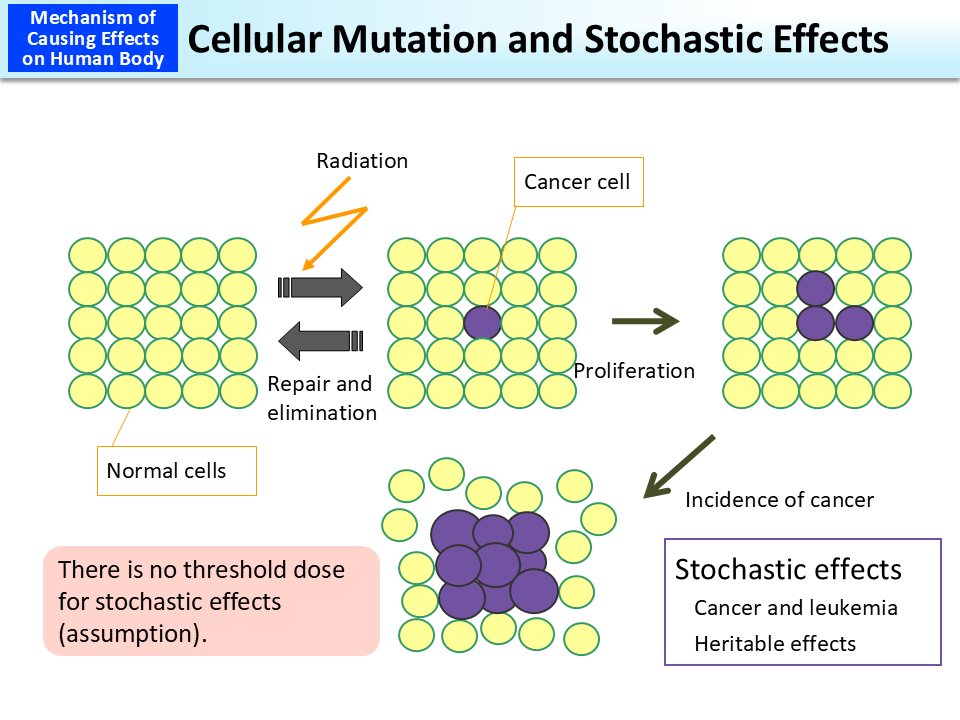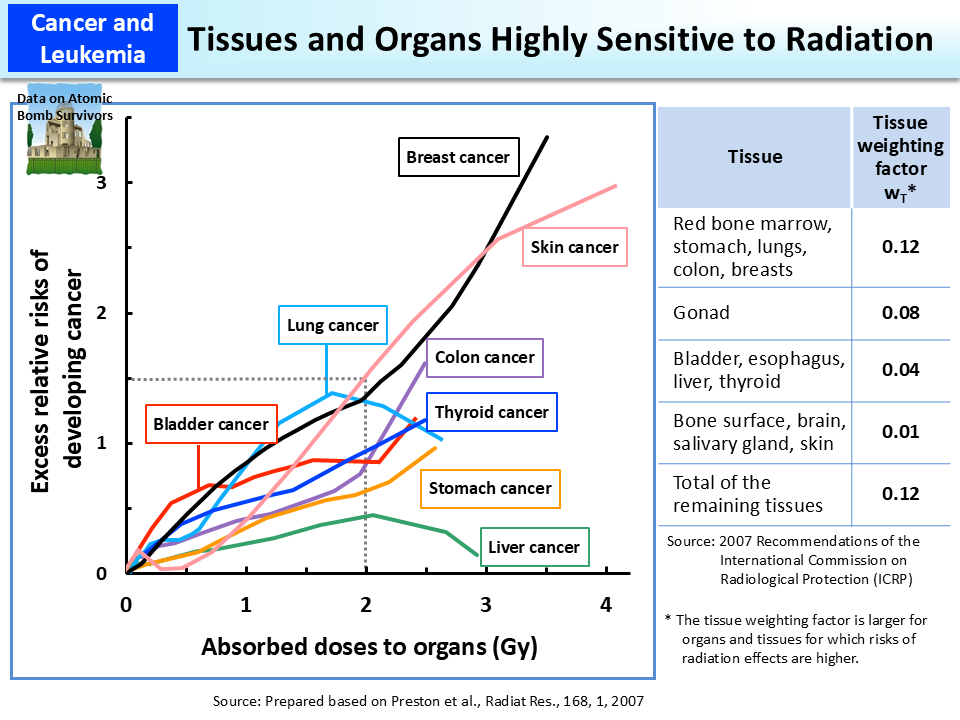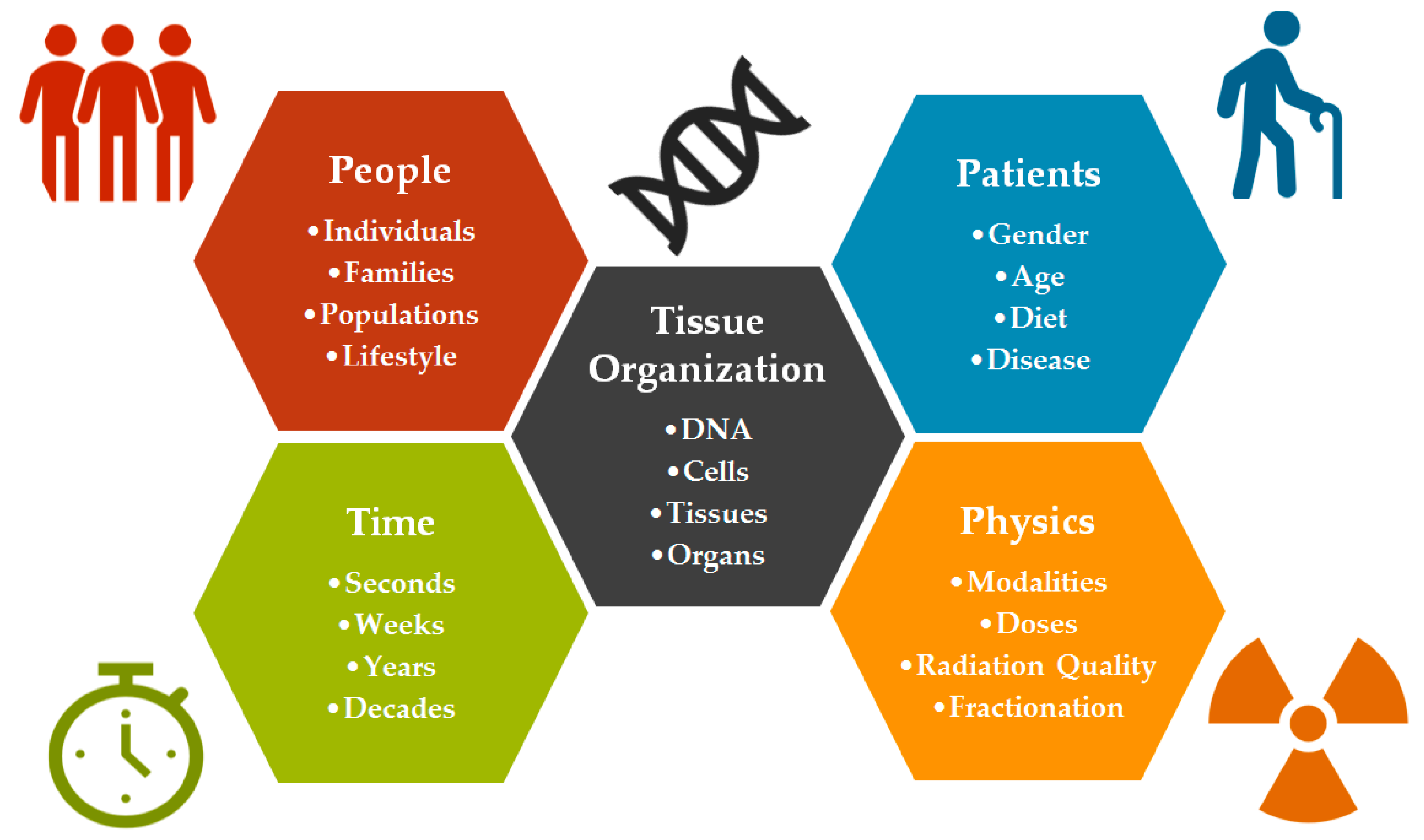Radiation exists all around us and is in two forms. Reproductive tissues are known to be more sensitive to IR damage and because women have more reproductive tissues than men do they are susceptible to more harm due to IR.

Radiosensitivity Of Organs And Tissues Moe
Despite this difference the same protection standards are currently applied to both men and women as per ICRP recommendations.

. A lead apron and a thyroid collar. Cancer is made up of rapidly dividing cells so the cancer cells are expected to be more sensitive to radiation than normal tissue. Even today the amount of radiation delivered to the tumor is limited by the collateral damage to nearby normal.
These organs cells or structures are Highly susceptible to the harmful effects of radiation. Urinary bladder esophagus liver thyroid. The tissue which is most sensitive to radiation is lymphoid.
Unlike ionizing radiation non-ionizing radiation does not remove electrons from atoms or molecules of materials that include air water and living tissue. The major challenge in radiation therapy is to eradicate the cancer without unduly damaging surrounding normal tissues. 94 No assumption need then be made about the.
Relative sensitivity of different tissues to the in- duction of tumours by radiation would be to 89 compare the induced tumour rates when all the 89 tissues received the same dose at the same time. Which of the following types of tissues is the most sensitive. The guidelines for proscribing dental radiographs used by the American Dental Association and the FDA recommended which of the following dental imaging procedures for a pregnant patient.
Ionizing radiation has so much energy it can knock electrons out of atoms a process known as ionization. Radiation sensitivity varies greatly between tissues. Ionizing radiation can affect the atoms in living things so it poses a health risk by damaging tissue and DNA in genes.
Which of the following tissues has the highest radiation sensitivity. Very sensitive cells are also oocytes and lymphocytes although they are resting cells and do not meet the criteria described above. Which of the following tissues has highest radiation sensitivity.
Some people are more sensitive to harmful effects of radiation than others. Must be used on all patients for all exposures. Which of the following organs are not more sensitive to x-rays and therefore nor considered critical organs.
The transcription factor p53 mediates the response to radiation. Notch signaling pathway inhibitors increase radiation sensitivity in head and neck cancer and colon cancer xenografts. WT 012 for each of 6.
There is evidence that normal tissue radiation doseresponse relationships are steep. This means that small changes in dose result in relatively large differences in toxicity 30. Are all people at equal risk.
And we should be aware of the harmful effects radiation can have on these before proceeding with the treatment. Radiation doseresponse relationships for normal tissues have a threshold at low doses which produce no reaction and saturate at high doses FIG. Must be used on all patients for all exposures.
Lymphoid organs bone marrow blood testes ovaries intestines. A lead apron and thyroid collar. Other tissues like the hard bone surface are particularly insensitive to radiation and are assigned a disproportionally low weighting factor.
Hence western blotting and RT-qPCR demonstrated that NumbNotch signaling pathway inhibition influences its expression of proteins in the downstream signaling pathway and increases the radiation sensitivity of human NPC cells. Amongst the body cells the most sensitive are spermatogonia and erythroblasts epidermal stem cells gastrointestinal stem cells. In 2007 the International Commission on Radiological Protection ICRP published a new set of tissue weighting factors 2 as below.
Ie some tissues are more sensitive to radiation damage than others. Skin and other organs with epithelial cell lining cornea oral cavity esophagus rectum bladder vagina uterine cervix ureters Moderate Radiosensitivity. Ionizing radiation comes from x-ray machines cosmic particles from outer space and radioactive elements.
In contrast there is no clear evidence that radiation causes cancer of the cervix or prostate. The reasons for their sensitivity are not clear. Stomach colon lung bone marrow red breast remainder tissues.
The tissues and organs showing high sensitivity include bone marrow leukemia breasts thyroid glands and lungs. Ionizing and non-ionizing radiation. The least sensitive are nerve cells and muscle fibers.
Non-ionizing radiation is a form of radiation with less energy than ionizing radiation. Some tissues like bone marrow are particularly sensitive to radiation so they are given a weighting factor that is disproportionately large relative to the fraction of body mass they represent. The sensitivity of tissue to radiation is related to the type of radiation x-rays alpha particles etc that exposes the tissue and the tissue type that is exposed due to the tissues cell age.
However the abundance of p53 protein does not correlate well with the extent. It is well known that different tissues react differently to radiation.

Tissues And Organs Highly Sensitive To Radiation Moe
What Are The Most And Least Radiosensitive Organs In The Body In Other Words Which Organs Would Get Cancer From Radiation Faster Than Others Quora

Cancers Free Full Text Clinical And Functional Assays Of Radiosensitivity And Radiation Induced Second Cancer Html
0 Comments